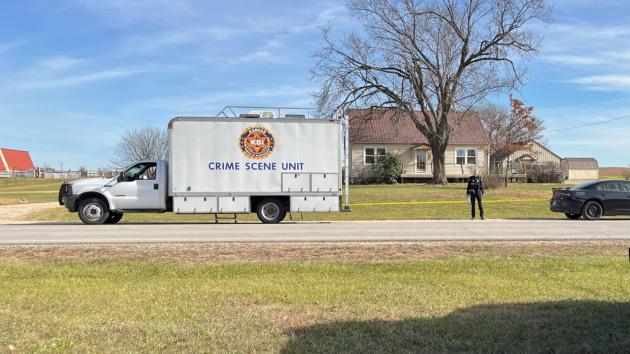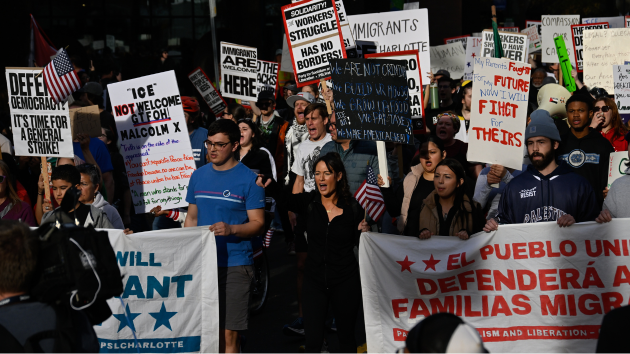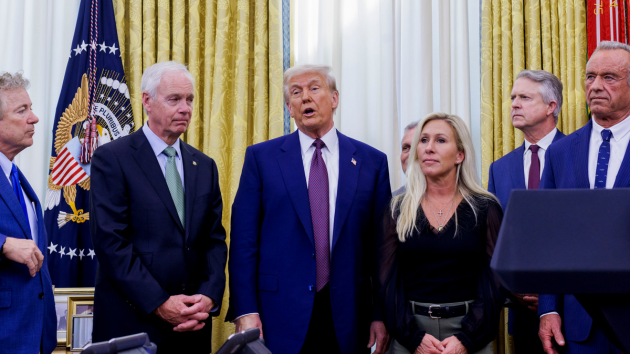Jack Smith, in final report, says voters saved Trump from being convicted in Jan. 6 case
Written by ABC Audio. All rights reserved. on January 14, 2025
Special counsel Jack Smith’s final report lays out in no uncertain terms federal prosecutors’ position that Donald Trump — who is set to be inaugurated president in less than a week — would have been convicted on multiple felonies for his alleged efforts to unlawfully overturn the results of the 2020 election, had voters not decided to send him back to the White House in the 2024 election.
That was one of the primary conclusions included in Smith’s final report on his election interference investigation, which the Justice Department released early Tuesday morning after a federal judge, late Monday night, cleared the way for the report’s release.
The report lays out the probe that resulted in Trump being charged in 2023 with four felony counts of undertaking a “criminal scheme” to overturn the results of the 2020 election in an effort to subvert democracy and remain in power. Trump pleaded not guilty to all charges.
The case, as well as Smith’s classified documents case against Trump, was dropped following Trump’s reelection in November due to a longstanding Justice Department policy prohibiting the prosecution of a sitting president.
“The Department’s view that the Constitution prohibits the continued indictment and prosecution of a President is categorical and does not turn on the gravity of the crimes charged, the strength of the Government’s proof, or the merits of the prosecution, which the Office stands fully behind,” the report said. “Indeed, but for Mr. Trump’s election and imminent return to the Presidency, the Office assessed that the admissible evidence was sufficient to obtain and sustain a conviction at trial.”
After conducting interviews with 250 witnesses voluntarily, calling 55 people to testify before the grand jury, executing dozens of subpoenas and search warrants, and sifting through a terabyte of publicly accessible data, Smith’s team concluded they could convince a jury beyond a reasonable doubt that Trump committed multiple federal crimes when he attempted to overturn the election, the report said.
“The throughline of all of Mr. Trump’s criminal efforts was deceit — knowingly false claims of election fraud — and the evidence shows that Mr. Trump used these lies as a weapon to defeat a federal government function foundational to the United States’ democratic process,” the report said.
For the first time, the report shed light on the internal deliberations of the prosecutors who sought to prove that Trump “engaged in an unprecedented criminal effort” while navigating the uncharted legal territory of charging a former president.
While prosecutors considered charging Trump with violating the Insurrection Act, Smith wrote that he opted against the approach because of the “litigation risk that would be presented by employing this long-dormant statute.” According to the report, prosecutors worried that Trump’s actions did not amount to an insurrection because he was already in power — rather than challenging a sitting government — when the riot took place. Smith also noted that his office did not obtain “direct evidence” of Trump’s “intent to cause the full scope of the violence that occurred on January 6.”
Smith also noted that the case against Trump presented unique challenges, including Trump’s “ability and willingness” to use social media to target witnesses, courts, and prosecutors with “threats and harassment.” Like any other case involving a conspiracy, prosecutors also expressed concerns about convincing witnesses to cooperate while the defendant still exerted influence and command over his alleged co-conspirators.
“That dynamic was amplified in this case given Mr. Trump’s political and financial status, and the prospect of his future election to the presidency,” the report said.
Despite those concerns, Smith’s report laid out how prosecutors planned to rebut Trump’s expected arguments to secure a conviction, laying out a play-by-play for how a trial would have proceeded had Trump lost the election.
If the former president argued that he acted in good faith when he claimed there was election fraud, prosecutors would present “strong proof” that Trump himself knew his claims of fraud were false. The report noted that Trump repeatedly noted in private how he lost the election, including berating Vice President Mike Pence for being “too honest” to challenge the results, telling his family “you still have to fight like hell” even if he lost the election, and remarking to a staffer, “Can you believe I lost to this f’ing guy?” after seeing Biden on television.
“This was not a case in which Mr. Trump merely misstated a fact or two in a handful of isolated instances. On a repeated basis, he and co-conspirators used specific and knowingly false claims of election fraud,” the report said.
If Trump argued he was following the advice of his lawyers, prosecutors planned to present evidence showing that his lawyers were acting as accomplices to the crime, preventing Trump from legally being able to employ the argument.
And if Trump argued that he was just using his First Amendment right when he challenged the election, prosecutors planned to highlight that Trump employed his statements to commit other crimes, including using false statements to defeat a government function, obstruct an official proceeding, and injure the right to vote.
“The Office was cognizant of Mr. Trump’s free speech rights during the investigation and would not have brought a prosecution if the evidence indicated he had engaged in mere political exaggeration or rough-and-tumble politics,” the report said. “The conduct of Mr. Trump and co-conspirators, however, went well beyond speaking their minds or contesting the election results through our legal system.”
In the report, Smith also detailed multiple interviews with various so-called “fake electors” who he said sought to cast votes for Trump — and admitted they would not have done so “had they known the true extent of co-conspirators’ plans.”
Smith told how investigators obtained Signal messages where “Co-Conspirator 4” — previously identified by ABC News as former DOJ official Jeffrey Clark — sent a message to Rep. Scott Perry saying he had received a highly classified briefing on foreign interference in the 2020 election that “yielded nothing” to support allegations of a stolen election.
“Bottom line is there is nothing helpful to P,” Clark’s message said, according to the report.
The report cites the handwritten notes of former Vice President Mike Pence that the special counsel obtained, about which Smith wrote, “In repeated conversations, day after day, Mr. Trump pressed Mr. Pence to use his ministerial position as President of the Senate to change the election outcome, often by citing false claims of election fraud as justification; he even falsely told Mr. Pence that the ‘Justice Department [was] finding major infractions.'”
Regarding the House select committee’s investigation into the Jan. 6 attack on the Capitol, the report said that probe only “comprised a small part of the Office’s investigative record, and any facts on which the Office relied to make a prosecution decision were developed or verified through independent interviews and other investigative steps.”
Volume One of Smith’s final report was released to the public early Tuesday after U.S. District Judge Aileen Cannon, following a weeklong court battle, ruled Monday that the Justice Department could release it.
Trump’s former co-defendants in his classified documents case, longtime aide Walt Nauta and staffer Carlos De Oliveira, had sought to block the release of both the classified documents volume and the Jan. 6 volume, but Cannon — who last year dismissed the classified documents case — allowed the public release of the Jan. 6 volume after determining that its contents have no bearing on the evidence or charges related Nauta and De Oliveira in their ongoing case.
After conferring with Smith, Garland determined that he would not publicly release Volume Two pertaining to the classified documents investigation because Nauta and De Oliveira’s cases were technically still on appeal.
In the classified documents case, Trump pleaded not guilty in 2023 to 40 criminal counts related to his handling of classified materials after leaving the White House, after prosecutors said he repeatedly refused to return hundreds of documents containing classified information. The former president, along with Nauta and De Oliveira, pleaded not guilty in a superseding indictment to allegedly attempting to delete surveillance footage at Trump’s Mar-a-Lago estate.
Smith resigned as special prosecutor on Friday after wrapping up the cases and submitting his report to Garland.
Copyright © 2025, ABC Audio. All rights reserved.





